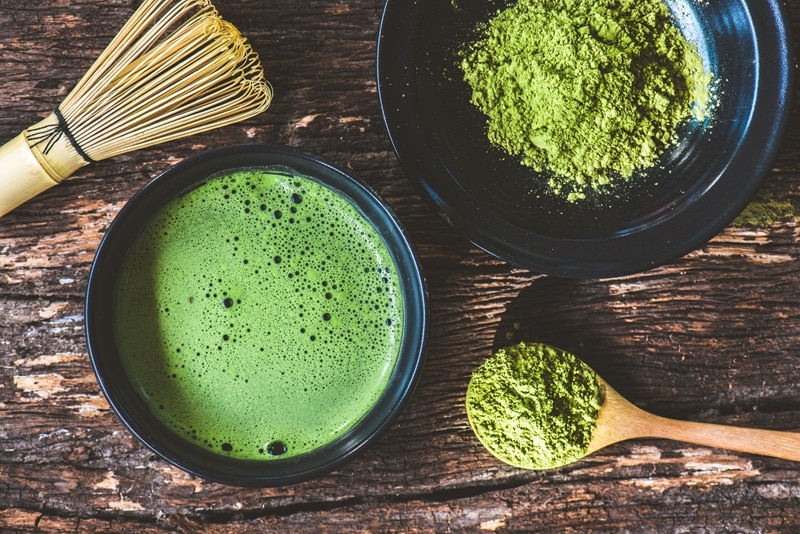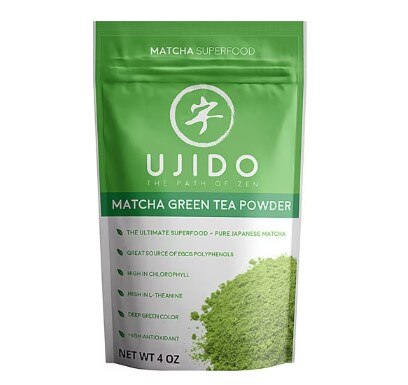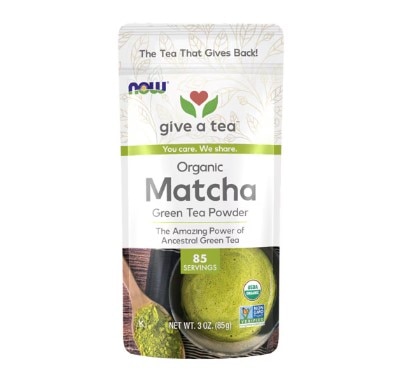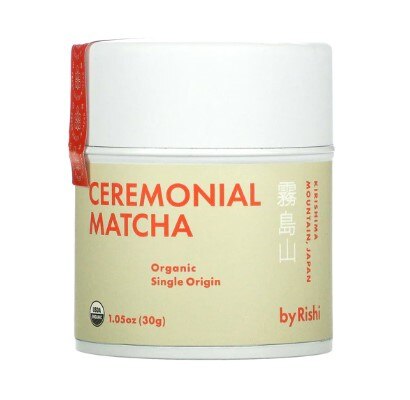Matcha tea has gained a lot of popularity over the past few years. You’ve likely seen it advertised online, in local coffee shops and probably from family or friends. You may be wondering, is this bright green and trendy drink worth trying? And if so, what are the benefits of matcha tea?
Here’s we’ll dive into all you need to know, including nutritious ways to try it for yourself.
What is Matcha Tea?
Matcha is a type of Japanese green tea. And while it may be newer to you, it’s an ancient beverage that has been around for centuries. Unlike some other tea plants, matcha plants are grown in the shade away from direct sunlight. This is done to help increase the chlorophyll content, which gives it a darker green hue. This process also increases the natural caffeine and amino acid content in the leaves.
Another thing that makes matcha different is that the whole leaf is used. In other teas, you typically steep the ground leaves in water and discard them when you’re done. With matcha, however, the entire tea leaves is ground into a powder which you then consume by mixing it with water or milk. This gives it even more health benefits. In fact, research even considers matcha to be the highest quality tea.
What Are the Benefits of Matcha Tea?†
Matcha tea has loads of benefits that are backed by research.† Here are some of the main benefits:
Rich in antioxidants†
Matcha tea is a powerhouse when it comes to antioxidant content — namely from a group called catechins. Antioxidants help protect the body’s cells from damage by fighting off free radicals, which are unstable molecules. In doing so, antioxidants may help protect the body from disease.
Thanks to the use of the whole tea leaf when creating matcha powder, it contains more antioxidants than any other type of tea. It also contains more than other popular antioxidant foods, including blueberries, dark chocolate and leafy green vegetables.
May support brain function†
Many of the components in matcha tea are excellent for your brain. For one, its main antioxidant — known as epigallocatechin-3-gallate (EGCG) – has been shown to support healthy cognitive function, such as memory. Matcha also contains natural caffeine along with the amino acid L-theanine. This combination has been shown by research to support brain function by supporting healthy attention and focus, but without the jittery effects that can sometimes occur with other caffeinated drinks.† This is in part why matcha has become a popular alternative to coffee.
May help support weight loss†
There’s a reason why green tea extract is a common supplement for weight loss. The combination of caffeine and catechins in matcha create an excellent combination for weight management. Research shows that these nutrients can help support your body’s metabolic rate and support the amount of fat you burn.† Just keep in mind that these benefits will work best in the context of a healthy diet and active lifestyle.
May support heart health†
The components of matcha tea may help support healthy blood lipid levels — which refers to your cholesterol and triglycerides. Having high cholesterol and/or triglycerides can put you at risk of heart conditions like stroke and heart attack. The ECGC can also help support the healthy absorption of fat into your bloodstream, which may also help protect your heart.† In addition, a review of other studies showed that green tea supplementation can help support blood pressure — another component of heart health — in healthy individuals.†
May protect cellular health†
Research has shown that the EGCG antioxidant in matcha is capable of promoting cellular health.† Some studies have focused specifically on its ability to support breast cell health, while others have shown that it can also support other areas such as the colon and gallbladder.†
How to include matcha into your diet
When just starting out with matcha, start simple. Try making (or ordering) a matcha latte as an introduction to this powerful tea. To make one at home, simply whisk (or blend) about ½ to 1 tsp of matcha powder in about 8 oz of hot water or your favorite milk. Then, add in a small amount your sweetener of juice — ideally a natural sweetener like honey or maple syrup.
Try to avoid matcha powder that has added sugar in it. These typically contain far more sugar than you need and sometimes contain other unnecessary additives as well. You’re better off adding in your own sweetener.
Other ways to enjoy the benefits of matcha tea include adding the powder to smoothies, baked goods or even oatmeal. Keep portions small — just a teaspoon or less is typically enough to reap the benefits while still providing great flavor.
What About Green Tea Supplements?
Since matcha is a type of green tea, you may have more questions about taking green tea supplements. These supplements are created by extracting the compounds of green tea and putting them into a supplement form, such as a liquid or capsule.
As mentioned already, there are some potential benefits of using green tea supplements for your health, including potentially supporting heart health and healthy weight management.† Before you buy these supplements, note that like most supplements, side effects are possible.
Side effects of green tea supplements may include:
- Nausea
- Constipation
- Abdominal pain
- Higher blood pressure
These side effects may depend on the brand and dose you take, as well as how your unique body reacts to them. To help reduce your chance of side effects, be sure to buy only from reputable brands that ensure quality testing, such as third-party testing. You should also check with your doctor before starting green tea supplements and only use them as directed.
In Summary
Matcha isn’t just another trendy fad. It’s a super nutritious beverage that has a slew of powerful health benefits. Remember that no single food has the ability to be a miracle cure for any and all types of illness or disease but incorporating matcha into your regular diet can help give you a healthy boost for your body.
†These statements have not been approved by the Food and Drug Administration. These products are not intended to diagnose, treat, cure or prevent disease.




